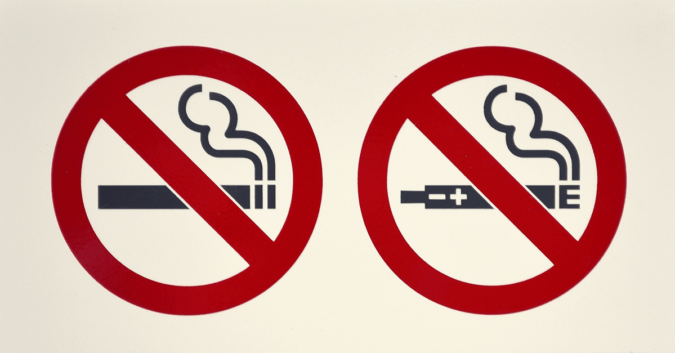Juul has enjoyed tremendous success operating its business from within the slowly shrinking gray area governing e-cigarettes. Now that people are getting sick and dying from vaping-related lung diseases, are things about to become more black and white?
On September 9, the Food and Drug Administration (FDA) sent a warning letter to Juul, calling on the e-cigarette manufacturer to stop advertising their products as a safe alternative to cigarettes.
After reviewing documents from a surprise raid of Juul’s corporate headquarters and disturbing internal documents that came to light in a recent House Subcommittee hearing, the FDA found the e-cigarette manufacturer to be in violation of a number of tobacco laws.
Why Is Juul’s Marketing Illegal?
Because hundreds of thousands of people die from tobacco use every year, the laws governing the substance are extremely strict. Regulations concerning the marketing of tobacco to children are clearly defined, and the science underpinning these rules is well established.
In order to sell tobacco products with reduced risk claims, a company is required by law to seek FDA approval for a “modified risk tobacco product designation.” The FDA then reviews the research and decides whether or not to let the product be promoted and labeled safer than tobacco.
Juul has not sought or received any such approval, yet it has promoted its powerfully addictive nicotine products as if they are safer. Although the vaping companies still have until next year to submit pre-market approval for their products, Juul has acted in blatant disregard of the law, by marketing their products as if they have already obtained the FDA’s modified risk tobacco product approval.
‘Juul Has Ignored the Law’
The e-cigarette manufacturer must now ensure that its tobacco products are not marketed in such misleading ways. If Juul does not, the agency may initiate further action, “including, but not limited to, civil money penalties, seizure, and/or injunction.” In a statement about the warning letter to Juul, acting FDA Commissioner Ned Sharpless said:
“Regardless of where products like e-cigarettes fall on the continuum of tobacco product risk, the law is clear that, before marketing tobacco products for reduced risk, companies must demonstrate with scientific evidence that their specific product does in fact pose less risk or is less harmful.”
Juul’s claims about their products’ safety are — at best — highly contested. The company did not engage in significant research before launching their product. That work has been left to independent researchers, and, in study after study, they continue to identify serious health risks associated with e-cigarette use.
For their part, Juul and the vaping industry have tried to paint the warning signs from researchers as overblown.
Now, hundreds of people, many of them teens, are checking into hospitals because of using an e-cigarette product that had no warning label. So far, there have been 380 confirmed cases and 6 deaths resulting from a vaping-related illness that health officials are now racing to understand.
In his statement, Sharpless left no room for interpretation, “JUUL has ignored the law, and very concerningly, has made some of these statements in school to our nation’s youth.” Juul has discontinued their in-school programs, but it was hardly the only avenue the company pursued in its deliberate campaign to addict kids.
The FDA also requested information regarding Juul’s use of nicotine salts and the 5% concentration of nicotine in its products. The company has 30 days to respond to the information requests, but only 15 working days to correct its legal violations.
Juul’s Next Fairy Tale: ‘They Bear the Burden’
There is little doubt that Juul will fight to keep their products on the market, but the company is facing challenges from other quarters. The Trump administration announced last Wednesday that all flavored e-cigarette products were going to be removed from the market within several weeks.
Michael Bloomberg, the former mayor of New York City, has pledged $160 Million over the next 3 years to ban flavored e-cigarettes in at least 20 cities and states. In Bloomberg’s opinion, the FDA had contributed to the vaping epidemic by punting on its ability to regulate.
“You don’t let the public do something while the science says it’s probably bad for you and you’re in the middle of conducting research. Wait until you do the research. If it’s no problem, no harm, no foul.”
Though the FDA is taking action, there is very little chance that Juul is likely to change its stance, regardless of what the research ends up showing. The vaping industry has instead continued to position itself as the victim of over-zealous regulators. In fact, they argue, restricting flavors threatens the public health by keeping options out of the reach of adults who want to quit.
The industry is evolving at a rapid rate, and given the public health effects so far, it is only sensible that the government is taking a more active interest. Juul and its competitors are not the victim.
And whether or not they have to pay for the mess they created, their users will. For the rest of their lives.
